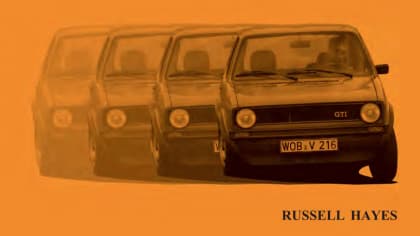WHEELS OF FREEDOM
The Car and Civil Rights
This article is from our archives and has not been updated and integrated with our "new" site yet... Even so, it's still awesome - so keep reading!
Published on Sat, Feb 18, 2017
By: The LACar Editorial Staff

By Roy Nakano
"The coming of the cheap automobile has meant for Southern Negroes, who can afford one, a partial emancipation from Jim Crowism."
That’s Petersen Education Coordinator Jason Hartwig quoting Gunnar Myrdal back in 1944, at the Museum’s inaugural Explorations series. Surrounded by the Mullin Family Grand Salon’s collection of Bugattis, Hartwig gave a presentation unlike any that one expects from a car museum.

“The Car and Civil Rights” presentation ran the automotive gamut, from community organizer Bernard Lafeyette’s use of an old, heavy vehicle for some of his more clandestine civil rights works in the South, to the role of African American labor in the car manufacturing industry, to the historic pattern of highway expansion through minority communities, to the “rolling churches” station wagons that were a key to the Montgomery bus boycott success in 1955.

Hartwig also talked about some of the prominent African Americans in automotive history, like Frederick Patterson, who turned his father’s carriage-building business into an automobile manufacturer, introducing the Patterson-Greenfield car in 1915. A few years later, Homer Roberts became the first African American car dealer in the USA.
In the Roaring Twenties and into the 1930s, Charles Wiggins blazed the racing trail, leading to his nickname as “The Negro Speed King”. After being barred from whites-only races like the Indianapolis 500, Wiggins was instrumental in the growth and popularity of the Colored Speedway Association.
Following in the footsteps of Wiggins, Wendell Scott became the first African American driver to compete in NASCAR. Scott obtained his NASCAR license in 1953. Ten years later, he became the first African American to win a Grand National Series race, NASCAR’s premier level.

On the two-wheel front, Jamaica-born Bessy Stringfield became the first African American woman to ride solo across the country. The exploits of “The Motorcyle Queen of Miami” gained national attention. In 2000, the American Motorcycle Association created the "Bessie Stringfield Memorial Award" to recognize outstanding achievements by female motorcyclists.
Within the world of automotive design, Hartwig recognized McKinley Thompson, the first African American designer to work for a major car company, Cliff Hall, the LA Sentinel photographer-turned-designer of the Corwin, and Ed Welburn, who recently retired as Vice President of Global Design for General Motors.
And then there was a mail carrier by the name of Victor Green. For 30 year, his Green Book guided African American motorists to non-segregated restaurants and hotels throughout the country. From 1936 to 1966, the Green Book became a safety necessity for African American travelers trying to navigate away from the humiliation and dangers of segregation.
“The last century will forever be remembered for the civil rights movement, as African Americans mobilized to fight for escape from the oppressive social structures within which they lived,” said Hartwig. “It was also the century of the automobile. The car helped transform economies and societies, revolutionizing the way people would live, work, and play. These trends are not isolated, but instead deeply connected.”

For its next program in the Explorations series, the Petersen Education Department will tackle another civil rights topic: The Car and Women. For more information about Petersen programming, go to Petersen.org. Got something to say about this article? Add your Facebook comments here.




